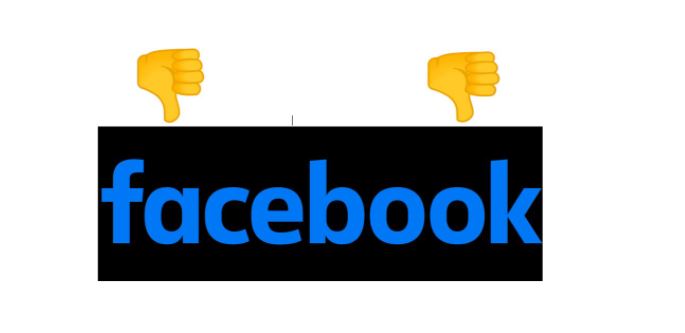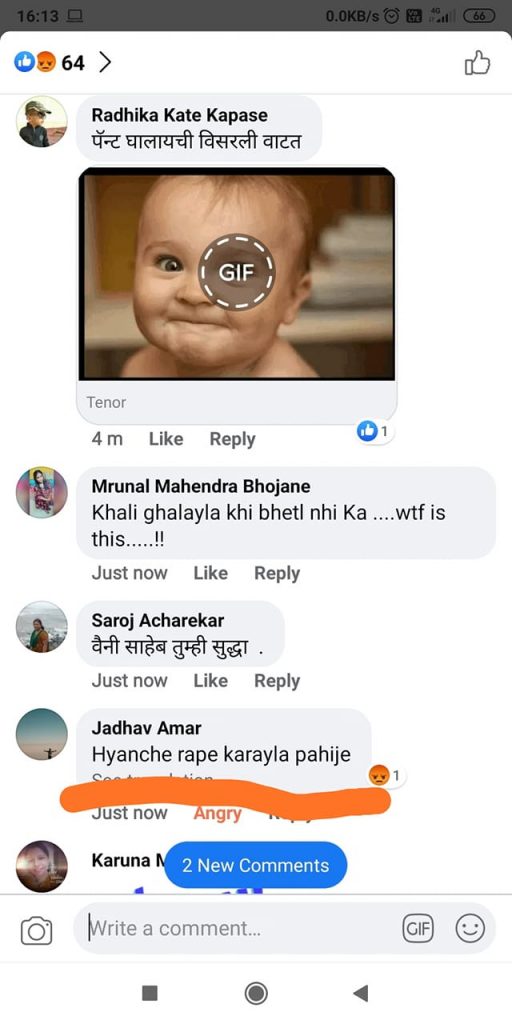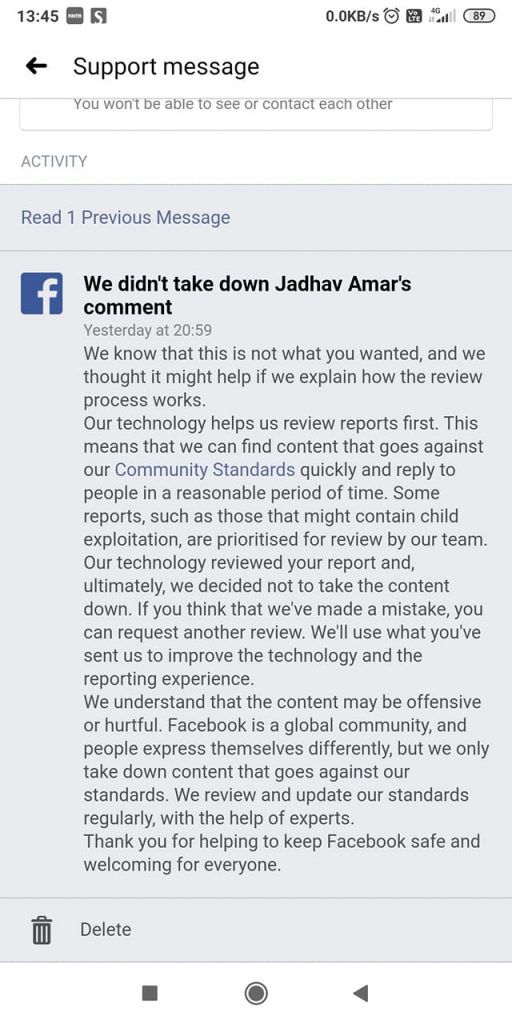The major negative point of social media, as we all must have seen, is hateful comments. And these hate comments become the worst when they become rape threats to women. Like other social media platforms, such comments are seen regularly on Facebook.
Also like other platforms, Facebook gives you an option to report a comment that appears hateful, violent or derogatory. The social media platform has in place, what they call, ‘community standards.’ As per them, any comment violating these guidelines will be either removed or the person commenting will face termination of his or her account.
However, as horrific as it may sound, rape threats don’t go against the so-called community guidelines of Facebook. I realized this recently when I reported a comment where someone received a rape threat.
Recently, while scrolling through Facebook, I came across a picture of a Marathi film actress shared by a page promoting Marathi films. I could see the comments where people criticized her because they believed she was skimpily dressed.

I didn’t think much about these comments as, unfortunately, I have got used to it. We are surrounded by people with sexist mind-sets; those whose blood boils when they see a woman wearing less clothes. But there was one comment, in Marathi, which shook me.
A man commenter under the picture – “Such people should be raped!” [See the comment below]

Now, this was very serious. I quickly reported the comment and waited for Facebook to get back to me.
I got a response the next day and, as weird as it may sound, they said in their response that the comment doesn’t go against their ‘community standards.’ Let that sink in. [See the image below]

If a rape threat, which is the worst form of comment, doesn’t go against their so-called standards, what exactly does?
Also read: #JusticeForSSR has no place on news channels now: Who gained, who lost?
My case isn’t the only one, by the way. When I shared this on Facebook, quite a few people said they have experienced the same thing. A cursory Google search will also enlighten you about others having had the same experience, which you can read HERE.
Over the years, I have experienced Facebook doing nothing about toxic communal and sexist posts I reported. But this takes their lack of seriousness for women safety on their platform to another level.
I found this confusing because every time Facebook has banned me or removed a post, they have issued an apology and reinstated the posts when they couldn t find any objectionable content. I have received these warning so many times on account of mass reporting that I perpetually feel that I’m walking on thin ice. It was on receiving one such warning that I decided to quit a while back. It’s almost as if Facebook’s system is logging me a repeat offender when, going by their apologies, I’m within the guidelines set by them. This is why I am struggling to understand Facebook’s Community Standards. The fact that many people write to tell me that they don’t see my posts on their newsfeed is an entirely different issue. What Facebook needs to realise is that, in a country where journalists either pay lip service to the government or get sued or shot down, theirs is a crucial medium for many Indians to voice their opinions. It seems Facebook is increasingly becoming a platform for people who wish to divide people, and not for those who ridicule these divisive tactics.